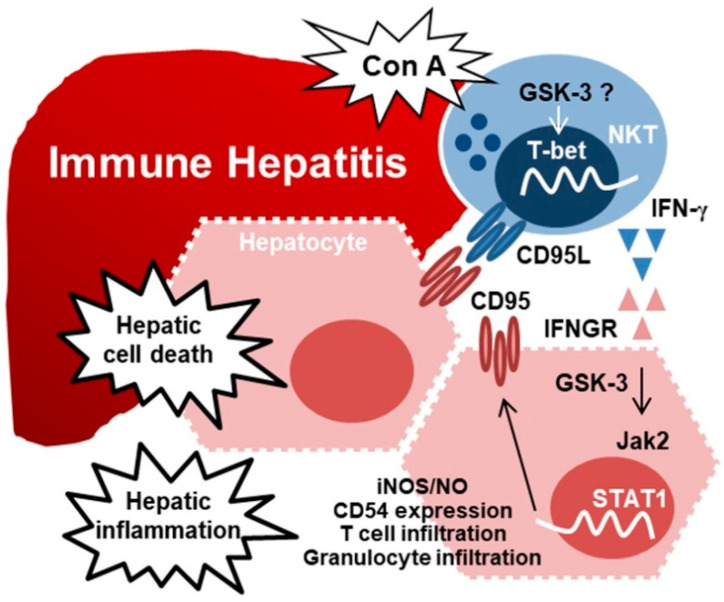Figure 4.
A hypothetical model for GSK-3-facilitated IFN-γ immune hepatitis. Treatment of ConA causes immune hepatitis through a mechanism involving NKT activation, hepatic cell apoptosis, and inflammatory activation. In activated NKT cells, in addition to CD95L induction, ConA induces GSK-3 activation to facilitate T-bet-modulated IFN-γ generation. Furthermore, signaling of IFN-γ and its receptor IFNGR may cause GSK-3-regulated Jak2/STAT1 signaling in hepatocytes to facilitate IFN-γ-activated Jak2-STAT1 signaling. IFN-γ is essential for inducing hepatic injury, including CD95-mediated hepatic cell death and hepatic inflammatory responses such as iNOS/NO biosynthesis, CD54 induction, and immune T cell and granulocyte infiltration. These findings illustrate a pathogenic role of GSK-3 in guiding ConA-induced immune hepatitis by facilitating IFN-γ expression, signaling, hepatic injury, and inflammation.

